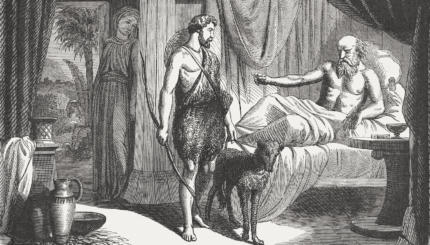David Blaine’s street magic specials are always fun to watch. If you haven’t seen what he does, this is a great example.
Now, if you’re anything like me, your immediate reaction was, “Oh my God – how did he do that?!” It almost felt like he was reading that woman’s mind, since it looked like she had the choice to have “picked a card, any card.” But in fact, where magicians like David Blaine are truly masters of illusion is in creating the best illusion of all – the illusion that we have free choice.
One of the reasons magicians are able to “know” what card we’ve picked is because they have already determined what card they wanted us to pick – it was never really actually “our” choice in the first place. Their trickery lies in their ability to lead us to feel invested in “our” decision.
Stephen Macknik and Susanna Martinez-Conde are the authors of the book Sleights of Mind: What the Neuroscience of Magic Reveals About our Everyday Deceptions, and they argue that the reason we feel like we were the ones who actually picked the card was because “[o]ur minds will go to surprising lengths to preserve [our] sense of agency and choice.” (pp. 171-172) In other words, our brains sometimes lie to us, leading us to believe that we have much more control over our situations than we actually do.
And yet that’s actually not all that surprising. We know in our own lives that we do not have unlimited choice – there are very real limits to what we have the freedom to do. We can not simply “choose” to get a million dollars – we have to work hard at a high-paying job, and even then, luck will play a big role in whether or not we succeed. We cannot just “decide” to lose weight – we have to diet and exercise, and even then, our metabolism or our willpower may make it challenging to meet that goal. Our genetics, our environment and our past decisions all restrict our choices to an extent. While we may want to believe we have total and complete free will, when we reflect on it, we recognize that we are not nearly as free as we think.
Rabbi Akiva’s Magic Show
This question of how much free will we truly have is actually a very old one, and it’s one the Rabbis grappled with, as well. And perhaps the most classic statement comes from Rabbi Akiva in Pirkei Avot, when he said, “All is foreseen, but freedom of choice is given.” (Avot 3:15)
But how does that work? How can there be free choice if God has foreseen everything?
Well, think about a magic trick, but think about it from two different perspectives — from the point of view of the magician who is orchestrating the trick, and from our point of view, experiencing it. For the magician, “all is foreseen” — he knows what is going to happen, and has planned everything out meticulously. But for us, it feels like “freedom of choice is given,” because we feel we could have picked any card at all. And that’s the point. For the trick to work, we have to believe that we are the ones in charge — even if that’s not really the case.
So that realization can also help us understand Akiva’s statement — except this time, let’s think of our lives from two different perspectives — from God’s and from our own. Now, we may believe that God has foreseen everything, or we may not. I think it actually doesn’t matter which one is true, because as imperfect human beings, we will simply never be able to know objectively one way or the other. The crucial belief for us to hold onto is that “freedom of choice is given” — and it’s crucial for us to hold onto that belief, even if that, too, is not always the case.
And that’s because if we simply feel invested in our choices — even if sometimes they aren’t always “ours” — we can then own them and take responsibility for them. If our only belief is that God has foreseen everything, that could easily lead us to abdicate our own sense of responsibility. But if we believe we are the ones in charge of our lives, then we can take pride in our ideas, celebrate our accomplishments, and become accountable for our decisions — regardless of how much they really are “ours.”
So whether or not “all is foreseen,” it’s much more important for us to act as though “freedom of choice is given,” because that’s how we feel a sense of ownership of our actions, over ourselves and our own lives. Because whether or not “all is foreseen,” and whether or not “freedom of choice is given,” we know from experience that there is great value in feeling like we can pick our destiny — any destiny we choose.
(originally published on Sinai and Synapses)



